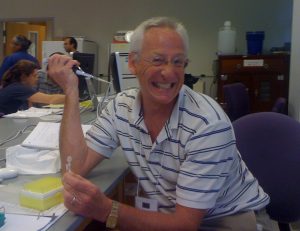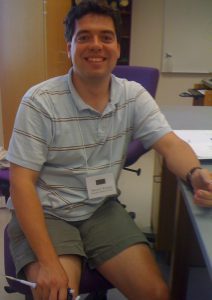Synthetic biology is an emerging subfield within molecular biology in which engineering, mathematical modeling, and biology come together in the design and construction of biological parts, devices, and systems for applications in medicine, energy production, and environmental research, among other fields.
In essence, synthetic biology standardizes biological “parts” (called BioBricks) in the way that railroad gauges were standardized in the 19th century……a series of DNA sections can be assembled into any number of systems by any laboratory through the use of a common procedure. Each year hundreds of universities gather at MIT for the annual International Genetically Engineered Machine competition (iGEM) to present advances in this exciting field (check out the above link for some of the applications presented at last year’s jamboree).
Recently, 15 faculty teams from around the United States gathered at Davidson College for a workshop sponsored by the Genome Consortium on Active Teaching (GCAT) on how to bring synthetic biology to America’s small colleges. Each faculty team consisted of a biologist and a non-biologist to encourage collaboration between disciplines: Hampden-Sydney was represented by Dr. Mike Wolyniak from Biology and Dr. Paul Hemler from Computer Science. The meeting encouraged a great deal of planning of how the two departments could work together to bring synthetic biology research to the Hampden-Sydney classroom and laboratory and encouraged participants to consider problems from the perspective of another discipline.
The meeting culminated in the conception and presentation of possible research ideas for student involvement. The Hampden-Sydney professors teamed up with teams from Longwood University and the University of Mary Washington to present a potential Virginia collaborative project in which bacteria and yeast could be used to detect mutagens in the environment:
Overall, participants left the workshop with great enthusiasm both to work together across disciplines and different colleges and to bring the emerging field of synthetic biology to the small college classroom and laboratory. Read more about the meeting and its proceedings at the following links:
http://www.nature.com/scitable/blog/insideed/guest_post_gcat_2010
http://www.bio.davidson.edu/projects/gcat/workshop_2010/workshop_2010_results.html




